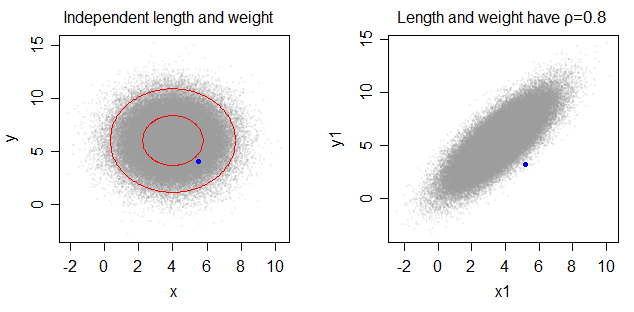How many "standard-deviations" that is in terms of two variables depends on how the variables are related.

On the left, the inner red curve contains half the probability, and the outer one contains 95%. The point is quite "typical". On the right, we see that if the variables are quite related the point may be quite unusual. On the other hand, a point that had weight 8oz and the same length (which is 1 sd above on both measures) would be even more typical in the case on the right than in the left hand image.
So the values you mention may be more or less unusual depending on the amount (and sign) of the correlation.
Note that in reality weight and length are probably positively correlated (both are associated with "bigness").
So, yes, if you knew the correlation (or the covariance) between the variables, then you could maybe calculate something like what you want -- perhaps a Mahalanobis' distance.
However, just as a z-score of 1 tells you something pretty useful if the data are from a population distribution that's reasonably near-normal, this tends ot be most useful if the data come from a population that's close to multivariate normal. If the variables are not reasonably close to multivariate normal you may want to look at some other way of measuring unusualness.

